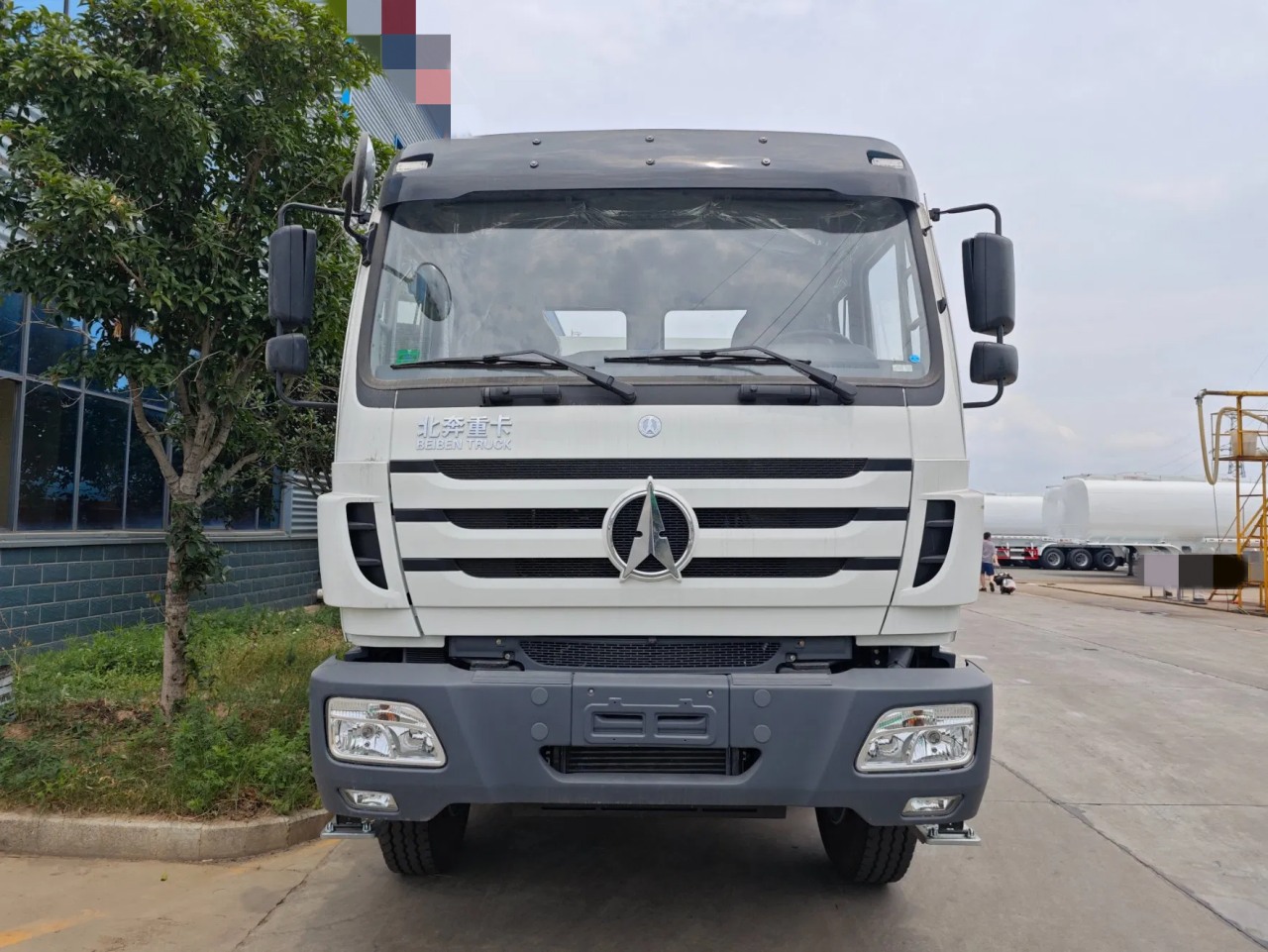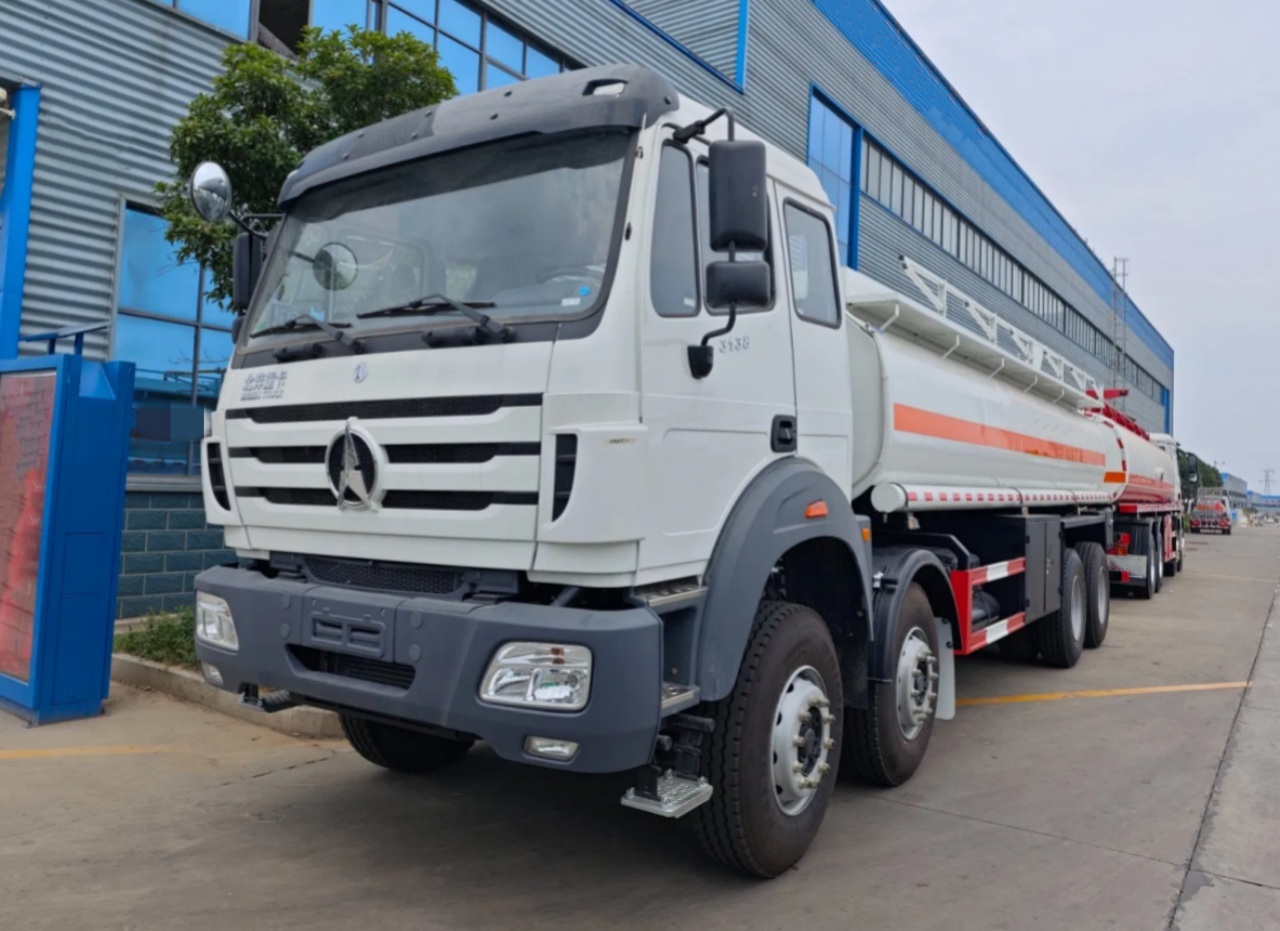Fuel Tank Truck: Key Specifications & Benefits for Safe Fuel Transportation
Fuel tank trucks, also known as fuel transporters or fuel tankers, are essential vehicles in the petroleum industry and are responsible for the safe and efficient transportation of fuel products like gasoline, diesel, jet fuel, and other chemicals. These trucks are built to carry large quantities of fuel over long distances, ensuring that refueling stations, industrial plants, airports, and other key facilities are stocked with the necessary fuel for their operations. To ensure safety, reliability, and compliance with regulations, fuel tank trucks are equipped with specialized features and specifications designed to prevent spills, leaks, and accidents during transport.
In this article, we will explore the key specifications and benefits of fuel tank trucks, focusing on their design, technology, and the role they play in safely transporting fuel.
1. Key Specifications of Fuel Tank Trucks
Fuel tank trucks are highly specialized vehicles built to meet stringent safety and regulatory standards. Below are some of the key specifications that define their design and performance.
a. Tank Construction and Material
The tank of a fuel truck is the central component of the vehicle. Typically, fuel tanks are constructed from high-strength, corrosion-resistant materials such as aluminum, stainless steel, or carbon steel. Aluminum tanks are preferred for their lightweight properties, which help improve fuel efficiency and reduce wear on the vehicle. However, stainless steel and carbon steel are also used for specific applications, such as in situations where more strength is required or for the transport of more corrosive chemicals.
The tank is designed with multiple compartments to allow the transport of different types of fuel or to segregate various grades of fuel. These compartments help prevent cross-contamination of fuels and provide flexibility for transporters dealing with various clients or markets.
b. Tank Capacity
Fuel tank trucks come in various sizes, with capacities typically ranging from 3,000 to 11,000 gallons (11,350 to 41,640 liters), though larger units can be customized for specific needs. The capacity of a fuel tank truck is determined by factors such as the size of the engine, the weight limits of the vehicle, and the nature of the fuel being transported. Larger tanks can handle high-volume transport jobs but are also subject to more stringent regulations regarding weight, safety features, and road limitations.
c. Pumping and Loading/Unloading Systems
Fuel tank trucks are equipped with advanced pumping systems that allow for easy loading and unloading of fuel. These pumps are usually powered by the truck’s engine or an independent power source and can be either centrifugal or diaphragm pumps. Centrifugal pumps are commonly used for their high flow rates, while diaphragm pumps are preferred for their precision and ability to handle a variety of fluids.
Loading and unloading systems typically feature flexible hoses, valves, and nozzles that are designed to handle the transfer of fuel safely. Many modern fuel tank trucks are also equipped with a metering system to monitor the exact amount of fuel being transferred, ensuring accuracy and preventing overflows.
d. Safety Features
Safety is the top priority when transporting flammable materials like fuel. Fuel tank trucks are equipped with a range of safety features to prevent accidents and spills:
- Vapor Recovery Systems: These systems capture the vapors emitted from fuel during loading and unloading, preventing harmful emissions and reducing the risk of fire or explosion.
- Anti-Surge Baffles: Baffles are installed inside the tank to reduce the sloshing effect of liquid fuel during transit. This helps maintain vehicle stability and prevents accidents caused by the sudden movement of the liquid.
- Overfill Protection: Many fuel tank trucks are equipped with automatic shutoff devices to prevent overfilling during the loading process. These devices ensure that the tank is never filled beyond its capacity, reducing the risk of spills and environmental contamination.
- Emergency Shutoff Valves: These valves allow the driver or operator to quickly stop the flow of fuel in case of an emergency, such as a fuel spill or accident.
e. Road Safety and Traction
Fuel tank trucks are often designed with low centers of gravity and anti-lock braking systems (ABS) to improve road safety. Given the high risk of tipping due to the shifting of fuel inside the tank, fuel tank trucks are typically designed with robust suspensions and anti-rollover measures. Proper weight distribution is critical to maintaining the vehicle’s stability, especially when driving on hilly or winding roads.
Additionally, tire specifications and road handling systems are crucial to maintaining vehicle performance and ensuring that the truck can safely operate under various conditions. Many fuel tank trucks are equipped with tire pressure monitoring systems to help prevent tire failures, a common cause of accidents.
f. Regulatory Compliance
Fuel tank trucks must comply with a variety of national and international regulations, including the U.S. Department of Transportation (DOT) regulations, the International Maritime Dangerous Goods (IMDG) Code, and the European Union ADR (European Agreement concerning the International Carriage of Dangerous Goods by Road) standards. These regulations cover various aspects such as weight limits, tank design, safety equipment, and fuel transport protocols. Compliance ensures that the truck is legally fit to carry fuel and operate on public roads.

2. Benefits of Fuel Tank Trucks
Fuel tank trucks offer numerous benefits, not only in terms of logistical efficiency but also in ensuring safety, environmental protection, and compliance with regulatory standards. Below are some of the key advantages.
a. Efficient Fuel Transportation
Fuel tank trucks allow for the efficient transport of fuel over long distances. By carrying large volumes of fuel, these trucks ensure that fueling stations and other fuel-dependent operations remain well-stocked. They play a crucial role in the global supply chain of petroleum products, especially in areas where pipelines or other means of transportation are unavailable.
b. Flexibility and Versatility
Fuel tank trucks are versatile and can be used to transport a wide range of fuels, including gasoline, diesel, ethanol, and jet fuel, in various combinations. This flexibility is crucial for meeting the needs of different industries, from automotive fueling stations to airports and power plants.
c. Enhanced Safety
As mentioned earlier, the safety features built into fuel tank trucks, such as vapor recovery systems, anti-surge baffles, and emergency shutoff valves, make them one of the safest modes of transport for hazardous materials. These trucks are designed to minimize risks to both the driver and the environment. Additionally, the regulatory requirements surrounding the design and operation of these trucks ensure that safety standards are consistently met.
d. Environmental Protection
Fuel tank trucks are also designed with features that help protect the environment. For instance, the vapor recovery systems mentioned earlier help reduce emissions during fuel transfers, and the overfill protection systems prevent accidental spills. The use of corrosion-resistant materials ensures the durability of the tanks, reducing the risk of leaks that could lead to soil or water contamination.
e. Reliability and Durability
Fuel tank trucks are built for long-term, high-volume use. The materials used in their construction, combined with the heavy-duty nature of their design, make these vehicles reliable and durable even under tough operating conditions. Fuel transporters undergo rigorous inspections and maintenance to ensure their optimal performance over time.
Conclusion
Fuel tank trucks play a critical role in the global fuel supply chain by ensuring the safe, reliable, and efficient transportation of fuel products. Their key specifications, from tank materials to safety features, are carefully engineered to meet the high standards required for the safe handling of hazardous materials. The benefits they offer, including efficiency, flexibility, safety, environmental protection, and durability, make them indispensable to industries relying on fuel delivery. By maintaining strict compliance with regulations and employing cutting-edge technologies, fuel tank trucks continue to ensure that fuel transportation is carried out with the highest levels of safety and responsibility.


